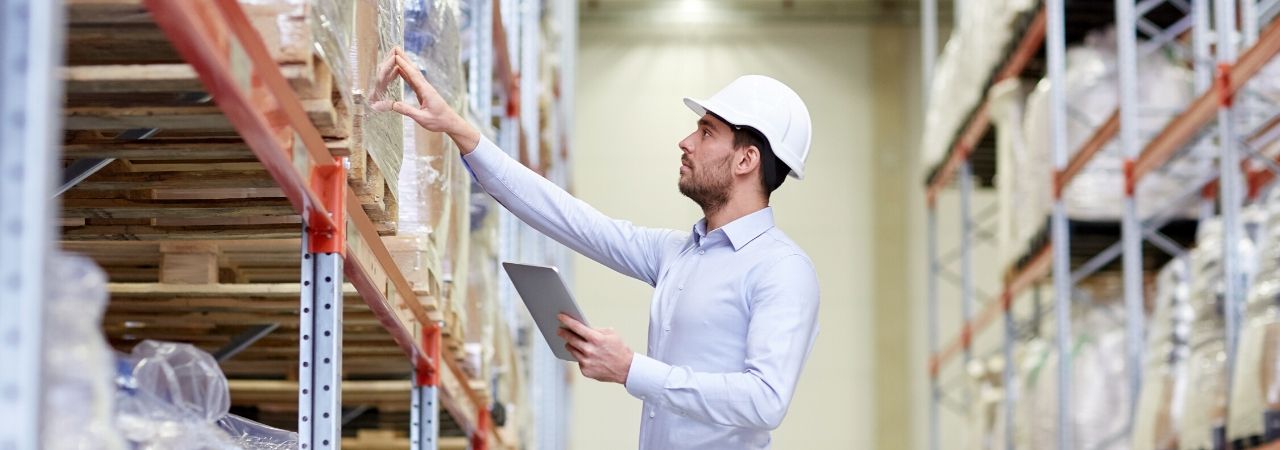

Our Instructor Spotlight is on Chris Barnes, CPIM, CLTD, CSCP. Chris teaches three courses for CPE: the APICS Certified Supply Chain Professional (CSCP) Certification Review Course, the APICS Certified in Production and Inventory Management (CPIM) Certification Review Course, and the APICS Certified in Logistics, Transportation, and Distribution (CLTD) Certification Review Course. He currently serves as the Executive Director for APICS Atlanta and is also a partner and producer for Supply Chain Now, an organization that highlights the best in supply chain practices and processes. Chris is a fellow in all three APICS certifications and has an MBA degree.
Marah: What professional experience do you have relating to the course you are teaching?
Chris: I’m a supply chain practitioner, so I’ve done much of what we talk about in class. I started out by getting my bachelor’s degree in industrial engineering. After that, I combined my operational knowledge with business knowledge by getting my MBA. Learning about business has enabled me to understand the inner operations of manufacturing plants, inventory control within the plants, and designing and improving warehouse operations. As a practitioner, I have had over 25 years of experience in supply chain and have worked as a supply chain consultant, practice manager, sales engineer, and now a director and coach. I’ve been teaching for over 10 years, as well.
M: What made you decide to become a teacher?
C: My first experience with APICS was right after college. My boss at the time took me to an APICS networking event where we gave a presentation. Ever since then, I’ve had a passion for sharing information and helping people understand how they can improve their operations.

M: Why do you love teaching?
C: Teaching is all about helping other people. Helping others is one of my favorite things. To me, teaching is not only about helping people understand how they can improve their operations but helping to improve their daily lives.
Whether it’s helping someone get a better job, improve the job they have, or get into the supply chain field, I love getting down to the wire and trying to understand what each individual student’s interests and objectives are. It’s incredible to be able to play a part in fostering that. The late Harvard University professor Clayton Christenson said, “Don’t worry about the level of individual prominence you have achieved; worry about the individuals you have helped become better people.” That’s why I love teaching; I have the opportunity to impact somebody’s life. If people are willing to make the investment to have greater opportunities in life, I am willing to make the investment to help them.
M: What is your teaching philosophy?
C: It goes back to the Clayton Christenson quote I shared. It’s all about trying to understand, on a granular level, what an individual’s goals are. When you understand their goals, I believe you’ll be able to be more effective as a teacher.
I actually don’t call myself a teacher; I’ve coined the term “edutainer” for myself. With primarily adult learners, I’ve learned you have to capture their attention just as much as you share information. If you can’t capture a student’s attention, you won’t be able to successfully share information.
M: Can you explain the difference between the three certification courses you teach?
C: APICS has three primary “Bodies of Knowledge” (BOK). First, there is CPIM. CPIM is related to granular inventory and manufacturing management. The certification is great for planners, those working in inventory control, schedulers, etc. CLTD is for practitioners whose focus is more on logistics, transportation, and warehousing. I like to say that CPIM is the “front-end” of supply chain and CLTD is the “back-end.” CSCP is a higher-level, broader overview of the whole supply chain on a more strategic level.

M: What do you believe students will gain by taking, specifically, the CSCP course? What are the key concepts you hope students will leave the course with?
C: The CSCP course is a 10,000-foot overview of what supply chain management is. As a supply chain practitioner, your main focus is on helping companies reduce costs. Students will need to know how to use technology to improve efficiencies and effectively save companies’ money. CSCP students will learn how to look at the C-level objectives of a company and answer the question, “How will our supply chain strategy support that?” We look at procurement and what relationships look like with trading partners, how to manage inventory, the bullwhip effect, and sustainable supply chain best practices. I want students to come out of the class understanding, across the board, what a supply chain is. What are the different components of supply chain, and how do they all interact? As an edutainer, the small wins are when students are learning something new, and then they apply the concepts at their jobs in ways they couldn’t before.
M: What’s your favorite aspect of the CSCP course to teach?
C: I enjoy teaching the strategy component. We talk about how supply chain supports the business strategy of an organization. In recent years, corporate social responsibility (CSR), which is a piece of CSCP, has begun to be emphasized in the business world. I enjoy teaching students the concept of CSR and how companies are not only concerned with their bottom-line profitability, but also with how they are impacting the environment and community they are engaging in. (This is the triple bottom line: how is your organization measured against people, profit, and planet?)
Also, this concept aligns more with the CLTD course, but I have always enjoyed telling students about containerization, which is the ability of companies to ship their products around the world. Containerization fascinates me because it is driven by a global standard; every company uses a standard container and agrees on that standard around the world.

M: How do you motivate students in your classroom?
C: How I motivate students goes back to the concept of being an edutainer and grabbing student’s attention first before they can grasp the information being shared. I’ve also found that students often have in-depth knowledge of a specific topic. If I find out that someone has a specialty in, for example, containers, I will talk about what I find interesting about containers. Then, they will have the opportunity to chime in and give their operational perspective. Having classroom discussions and giving people networking opportunities is a big way to engage students and get them motivated.
It’s also important for me to understand what a student’s individual objectives are. If you don’t know someone’s why, you can’t help them achieve it. If you do know their why, you can use their why to inspire and motivate them. I also like to share my real-world experiences and information I’ve read, and we watch videos and talk about current events often.
M: What resources would you suggest to APICS students?
C: I have a YouTube channel, APICSCoach, where I share educational recordings for APICS students. Students can see some of the Supply Chain is Boring content there, as well as videos that are specific to helping them prepare for and pass the APICS exams. When we are learning different concepts in the class, I like to talk about what the concept means from an academic standpoint and give my perspective. Then, I find a practitioner who is using that tool or concept in real life and interview them about their experience with that tool or concept.
M: Can you talk about Supply Chain Now and what your organization offers?
C: We push out weekly content such as podcasts and webinars where thought-leaders and experts share industry news, best practices, and events in the area of supply chain. We also share supply chain news on social media platforms like Facebook and LinkedIn. My specialty is hosting the Supply Chain is Boring program for Supply Chain Now. I talk about the history of supply chain and interview people who’ve had an impact on supply chain in the past fifty years.

M: What are three fun facts about you?
C:
- My favorite movie is O Brother, Where Art Thou. I enjoy the Cohen Brothers writing and the witty, dry humor they incorporate in their movies. I think that says a little about me and my approach to life!
- I used to travel often, and when traveling, I would try to visit a Chick-Fil-A wherever I was. I have visited over 215 Chick-Fil-A’s across the country! They’re all pretty efficient, in case you were wondering.
- When I started studying the interstate system, I found that there are over 40,000 miles of interstate in the US (including Alaska, Hawaii and Puerto Rico). I’ve started tracking, as I travel, all the interstates I have been on.
M: Is there anything else you would like to share?
C: If you’re paying attention to the news, you can see that supply chain is where it’s at! Companies are hiring, or will be hiring, by the end of the year, so there’s a lot of space for growth. People say nothing happens until a sale is made; I say nothing is delivered until supply chain is done. If you buy anything, it’s because it’s been delivered by someone in supply chain who did their job correctly. It’s a great career, and if you’re willing to make the investment to improve yourself and in your profession, I’m willing to make the investment to help you along the way.
ABOUT THE AUTHOR:

Hi! My name is Marah Whitaker (think Laura with an M). I am the Marketing Assistant for UTC Center for Professional Education. During the workday, I spend time writing blog posts, creating content for social media, developing email campaigns, and building relationships with our customer base. During my free time, you can find me getting lost in a good book, having spontaneous dance parties, playing piano, and going to Buffalo Wild Wings on Wing Night. Professionally and personally, I aspire to live by the Mr. Feeny quote, “Dream. Believe. Try. Do Good.” I strive to use my passions to serve others and contribute positively to the world around me.
Connect with me on LinkedIn.